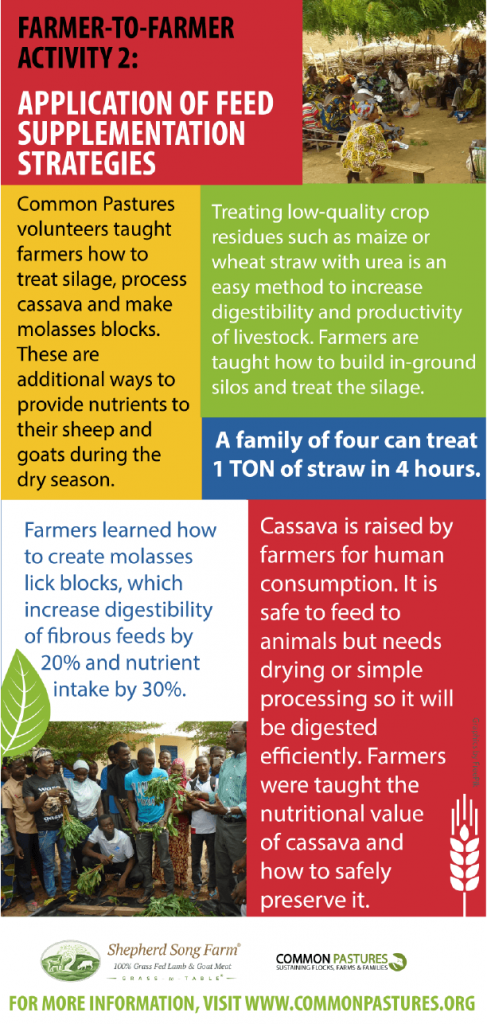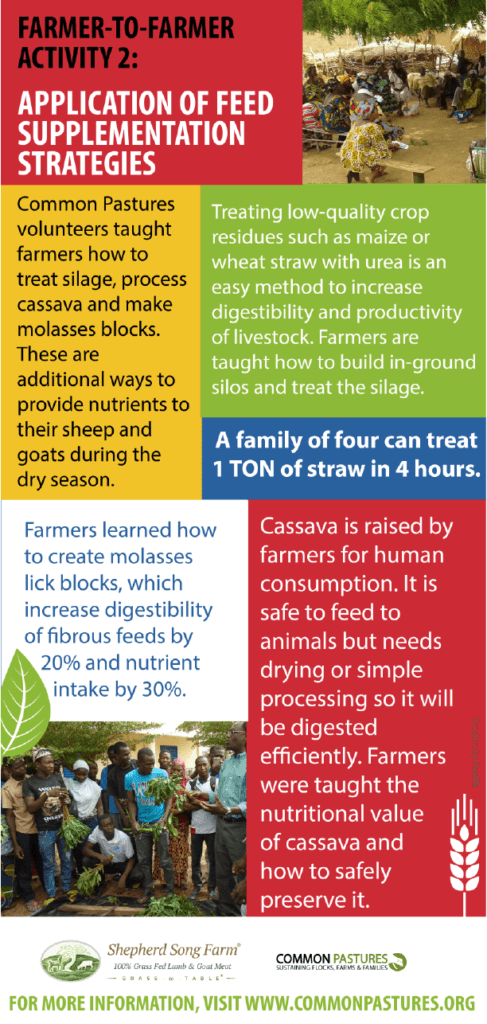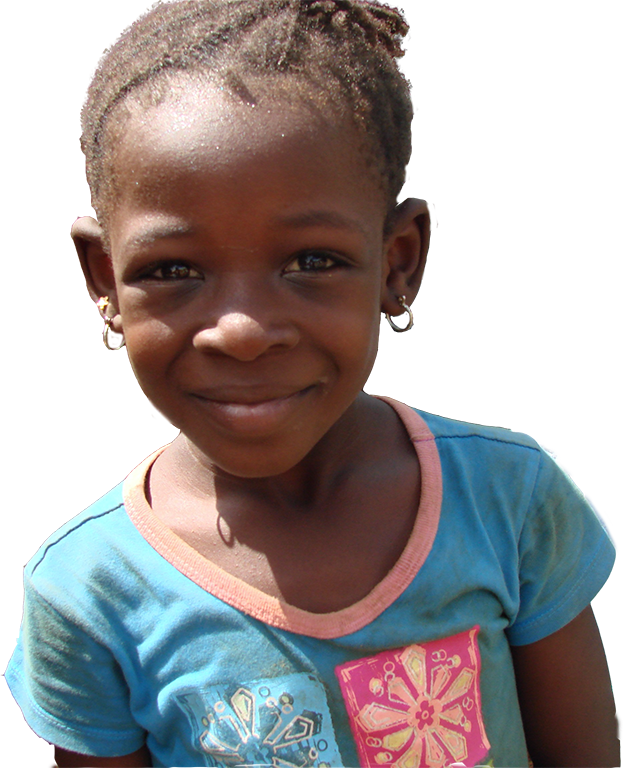
Farmer-to-Farmer: Mali (Infographic 3 of 4)
Mar. 21 | 2017
Farmer-to-Farmer: Mali (Infographic 3 of 4)
In the second assignment, Common Pastures volunteers worked to educate small famers on the ways they can supplement the feed of their goat and sheep flocks with resources already available to them. Malian farmers were taught how to make molasses mineral blocks, treat silage, and process cassava to provide additional nutrients to their flocks during the dry season.
Sheep and goat diets in Mali are based on fibrous, low nutrient feeds like mature pastures and crop residues. These feeds are deficient in protein, minerals and vitamins and are poorly digested keeping intake low. Supplementation with urea molasses blocks can increase digestibility of fibrous feeds by up to 20%, and increase nutrient and feed intake by up to 30%. During the process vitamins, minerals, and protein can be added.
Cassava dry hay and silage is safe to feed to animals but needs drying or simple processing so it will be digested efficiently.With over 4,000 hectares of cassava grown in the area we work, silage would be an important product for milking herds and could be a profitable small business for an entrepreneur. Information on cassava production, management and its importance in both human and animal nutrition was demonstrated to two farmer cooperatives, in addition to students at the University of Segou, and two Agro Pastoral schools.
Treating low quality crop residues such as maize or wheat straw with urea is an easy method to increase digestibility and productivity of livestock. Common Pastures volunteers taught farmers how to treat the crop residues with urea and water, place them below the ground in lined pits and seal for at least 3 weeks
This is part three of a four-part infographic series that shares information on our work with the Farmer-to-Farmer Program in Mali. Read Part 1, Part 2 and Part 4.


